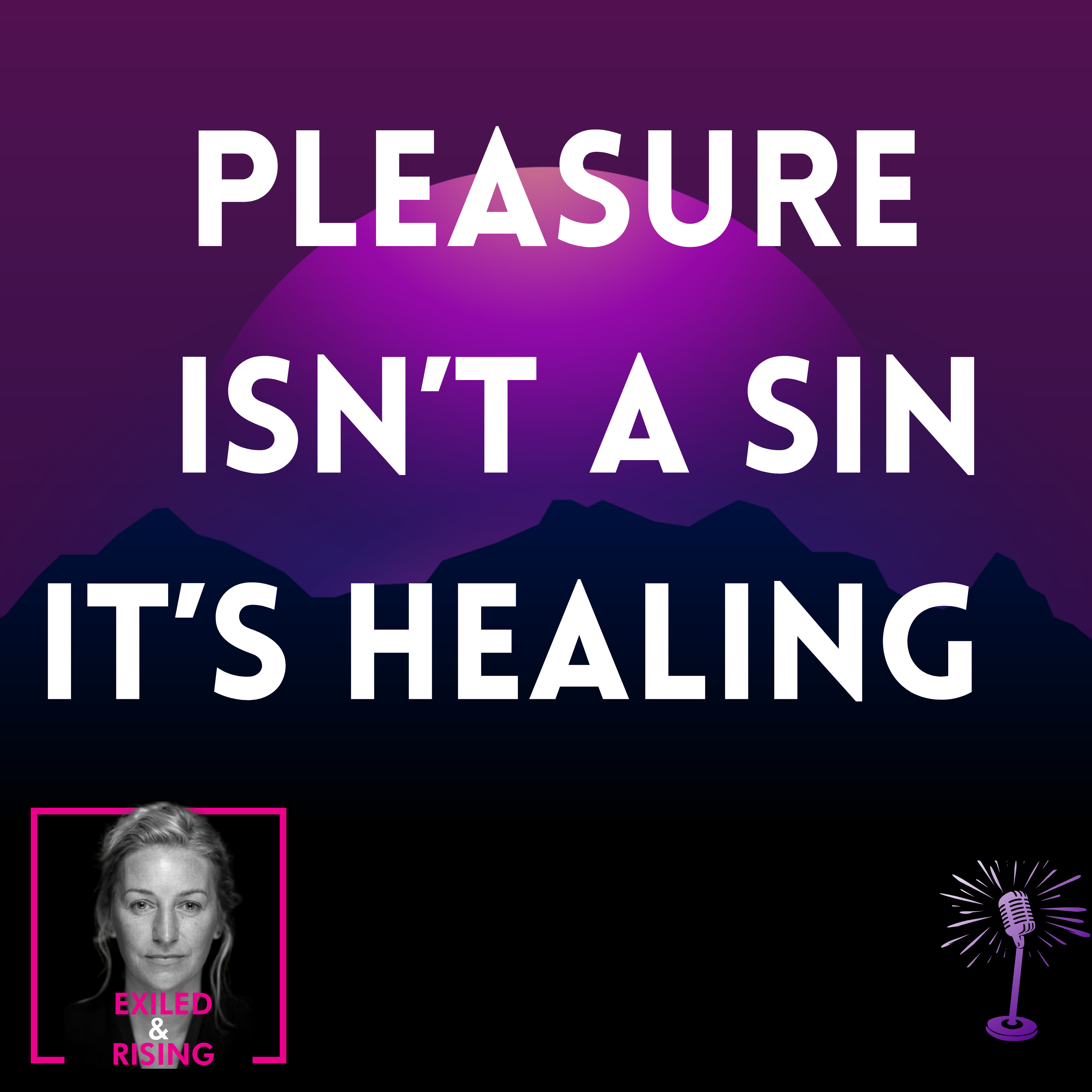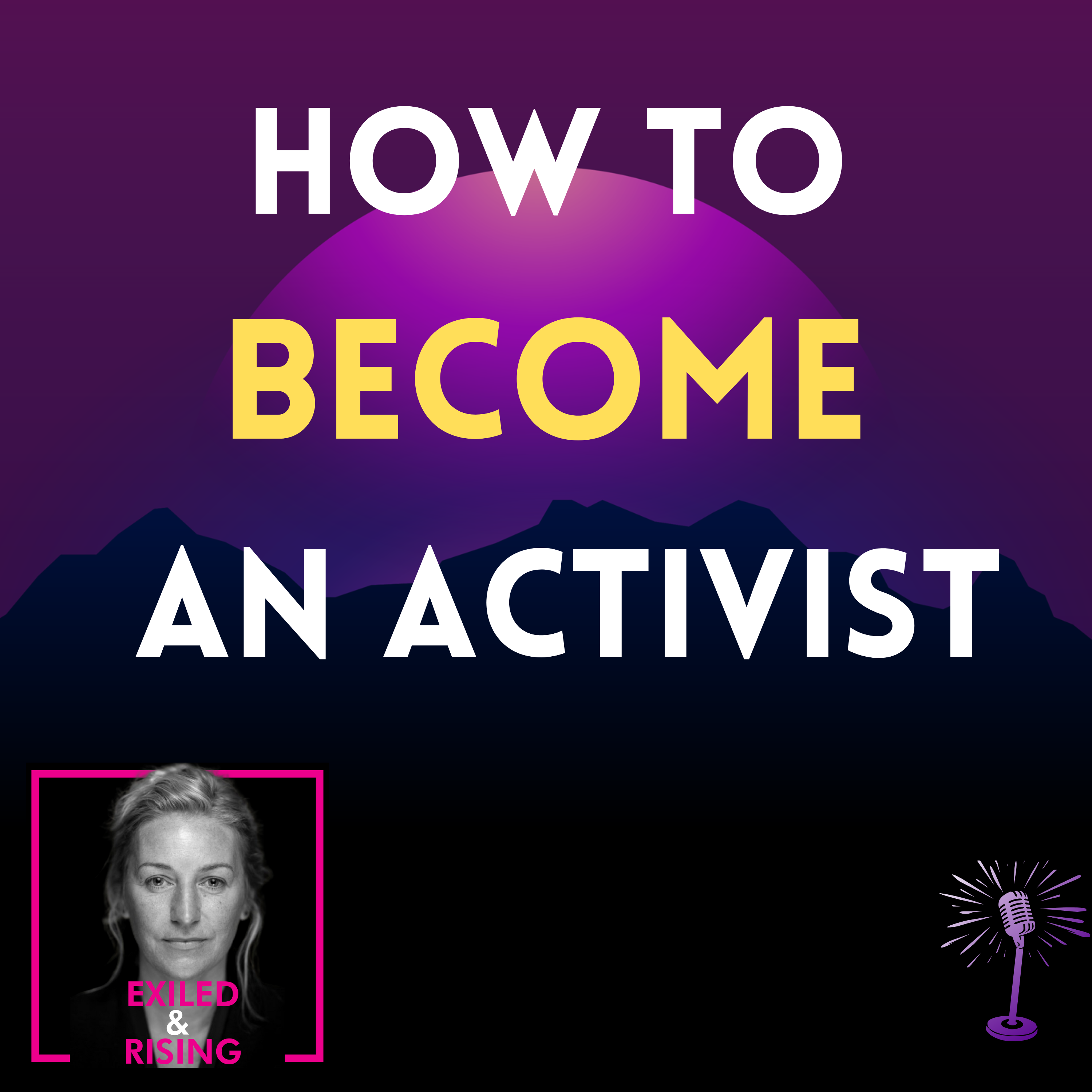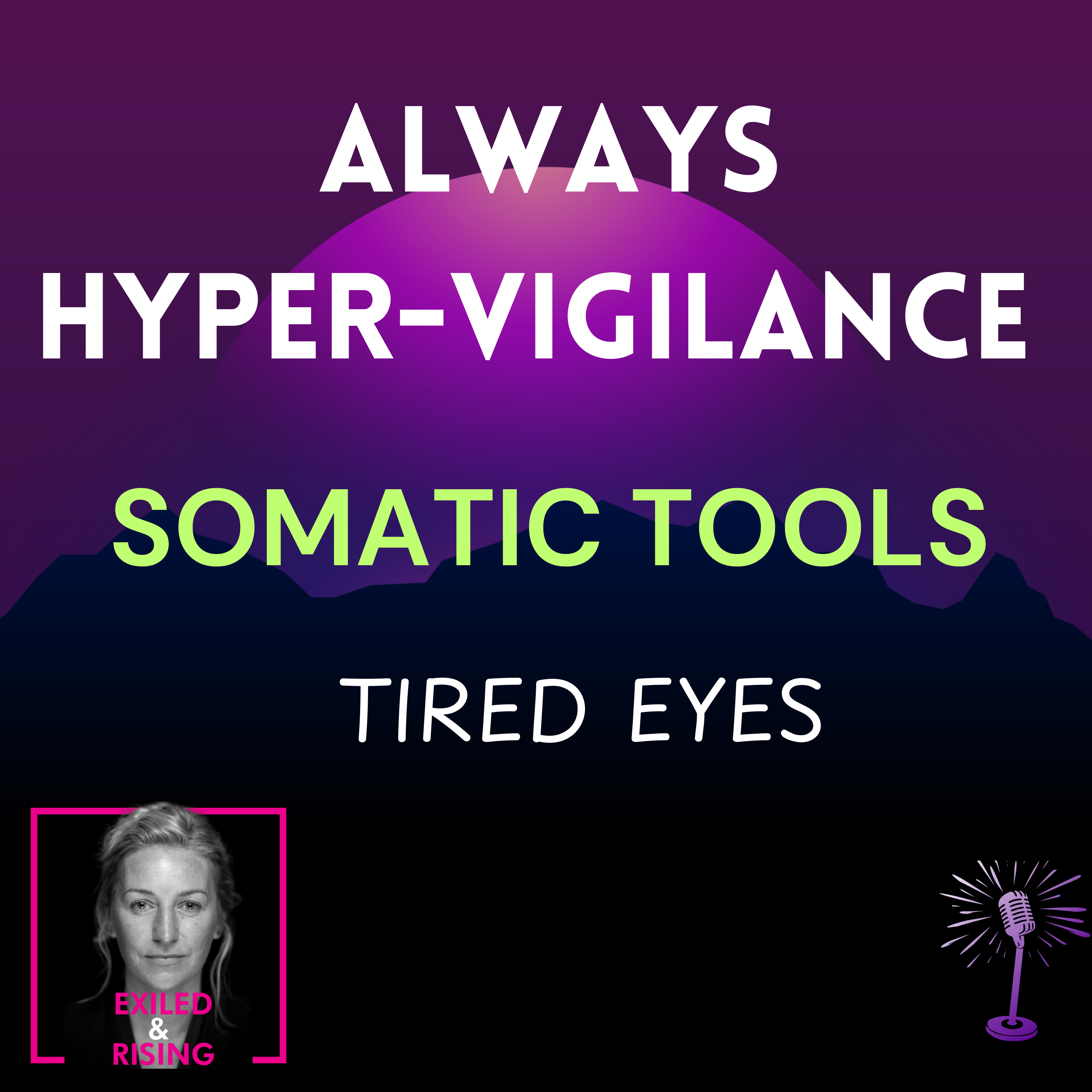Show Notes
Ana teaches that shame around pleasure is not morality — it’s trauma. Reclaiming joy is not betrayal of your past but devotion to your life.
Ana Mael’s “Pleasure Is Shame” — one of her most layered and psychologically rich pieces, combining trauma theory, embodiment, and intergenerational survival dynamics.
ANA TEACHINGS & PROGRAMS
https://exiledandrising.mykajabi.com/store
Get the Book: The Trauma We Don't Talk About https://amzn.to/41SjKKL
❤️ Please donate
This podcast is independently run. No production teams. Fancy edits. Only a somatic education, truth & storytelling.
https://donate.stripe.com/3cI9AS5Xfb9W6O832VfEk00
_____________________________________
Core Teaching
-
Pleasure and shame are trauma-linked.
Ana reframes pleasure not as indulgence or luxury, but as an innate human state — one that trauma disrupts. Survivors often associate pleasure with danger, humiliation, or betrayal because it was used against them or forbidden by those in power. -
Abuse severs the link between aliveness and safety.
When abusers punish victims for joy, sensuality, or satisfaction, the nervous system learns: pleasure = threat. What should be restorative becomes dysregulating. -
Guilt replaces joy.
Once shame takes root, guilt follows — not just as an emotion, but as a physiological residue. The survivor internalizes the abuser’s judgment, carrying it like “molasses” over the body, believing they can never be clean, good, or worthy again.
Somatic and Psychological Lens
-
Pleasure as a body-based function.
Pleasure is not abstract; it’s neurochemical (dopamine, oxytocin, endorphins). When trauma teaches the body that pleasure is unsafe, these pathways constrict. The body literally stops producing or tolerating sensations of delight. -
The “molasses” metaphor:
Ana’s description — “as thick as molasses, the guilt and shame drips over the body” — translates an emotional imprint into somatic texture. It communicates how shame feels heavy, sticky, and inescapable. -
Cycle of pleasure–punishment.
Many survivors oscillate between denial and overindulgence:-
Seek pleasure → feel guilt → self-punish → suppress desire → seek again.
This repetition mirrors trauma’s pattern: relief, shame, punishment, freeze.
-
-
Nervous system dysregulation.
The body of a survivor can’t hold high-arousal states (joy, excitement, sensuality) without tipping into anxiety or collapse. Ana implies that capacity for pleasure must be rebuilt slowly — in titrated doses of safety.
Intergenerational & Cultural Trauma
-
Survival guilt and inherited deprivation.
She links personal trauma to collective trauma: oppressed, displaced, or war-torn communities may view pleasure as betrayal. “If I’m happy while my people suffer, I’m disloyal.” This is survival guilt disguised as morality. -
Loyalty to deprivation.
The phrase “loyalty to deprivation” is brilliant and brutal. It names how generations conditioned by suffering valorize endurance over joy. Ana reframes this as disloyalty to life itself. -
Oppression as a pleasure-killing system.
Colonialism, patriarchy, and authoritarian control all regulate pleasure — especially for women, marginalized, and oppressed bodies — because pleasure is autonomy. Restoring pleasure is an act of resistance.
Somatic Healing Principles in the Text
-
Pleasure seeks safety.
The nervous system can only open to pleasure when it feels secure. Pleasure and safety are interdependent states. -
Safe environments rewire desire.
Healing requires physically and relationally safe contexts — places where joy isn’t punished, sensuality isn’t shamed, and the body can relax. -
Micro-practices of joy.
Start small: warmth on the skin, a stretch, savoring food, music, or sunlight. The body relearns that pleasure doesn’t predict punishment. -
Reframe loyalty.
Feeling good doesn’t betray your lineage. It honors it — proving that your people’s suffering didn’t erase their descendants’ right to thrive.
Philosophical and Political Dimensions
-
Pleasure as resistance.
For trauma survivors and oppressed peoples, reclaiming pleasure is a political act. It says: I choose life despite what tried to erase me. -
Shame as control mechanism.
Whether from abusers or institutions, shame is a governance tool. It keeps bodies obedient. Reclaiming pleasure dismantles internalized oppression. -
Healing as re-embodiment of joy.
Ana’s statement — “Your body will learn to invite pleasure back in” — shifts healing from cognitive processing to embodied reclamation.
What Ana Is Teaching
-
If pleasure feels unsafe, that’s a symptom — not a flaw.
The body is protecting you based on old information. -
Pleasure requires social safety.
You can’t heal pleasure alone; you need safe relationships and environments. -
Guilt ≠ loyalty.
You honor your ancestors by living fully, not by continuing their deprivation. -
Pleasure is sacred.
It’s the nervous system’s way of saying, I’m safe enough to live. -
Relearning joy takes time.
Like trauma, it’s layered — the body must rebuild trust in good sensations.



